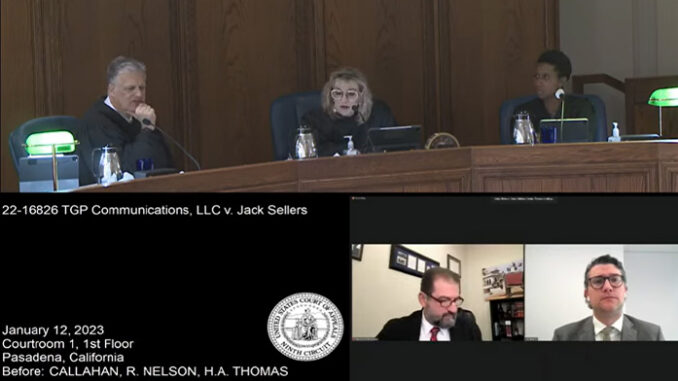
Maricopa County avoided a likely scathing federal court ruling Wednesday when the board of supervisors voted to pay $175,000 to reporter Jordan Conradson and the parent company of right wing news site The Gateway Pundit.
The settlement raises questions about the legal advice provided by Maricopa County Attorney Rachel Mitchell and her decision to defend obvious First Amendment violations highlighted by the county’s politically-tinged refusal to issue Conradson a press pass during the 2022 General Election.
But in light of Maricopa County’s disastrous appearance during oral arguments at the U.S. Court of Appeals for the Ninth Circuit in January, it is now clear why Mitchell’s office found settling the case to be the best available option.
One example of the critical pushback came from Judge Consuelo Callahan, who said there was “some concern” with the legal advice provided by Mitchell and her staff to the county’s communications department about the press pass policy.
“Aren’t you in a position to say hey, you don’t understand the First Amendment here, you’re wrong and I’m not going to defend that position?” Callahan asked Deputy County Attorney Charles Trullinger. “Or do they just get to tell you to defend it, no matter what?”
The case started in September 2022 when Conradson was denied a press pass required for members of the media to gain entry to Maricopa County facilities to cover election-related events. The county’s denial notice referred to Conradson’s political views as a conflict of interest and alleged he was not “a bona fide correspondent.”
Conradson and his employer, TGP Communications, then filed a federal lawsuit in November. A federal judge in Phoenix initially sided with Maricopa County after Trullinger argued that county officials have “the right to set up criteria for ethical reporting” when evaluating who can obtain a press pass.
Attorneys for TGP and Conradson appealed, and in early December the Ninth Circuit issued a preliminary order requiring the county to issue a temporary press pass to Conradson while the case was being litigated.
Then in January, a three-judge panel at the Ninth Circuit in Pasadena heard arguments from the parties. And it was clear from comments by all three judges that the county’s policy was in trouble.
At one point, Judge Ryan D. Nelson asked, “why are you using this?” in referring to the press pass criteria. Nelson, a Trump appointee, was then interrupted by Callahan, who pushed back on the county’s claim that its criteria had nothing to do with Conradson’s personality or whether county staff liked the journalist’s work.
“The First Amendment means that we have to hear things, sometimes, that we don’t want to hear,” said Callahan, a GW Bush appointee. “It protects the unpopular speech.”
Callahan told Trullinger that it “just seems like you’ve got county officials here not liking this person and what this person’s saying.” When Trullinger offered a response, stating the county’s interest is with a journalist’s news gathering “process” and not the content, he was interrupted by Nelson.
“I’ve got to be honest. What you’ve just said seems like a blatant violation of the First Amendment,” Nelson stated. “This just goes to the point you guys can’t be trusted with the First Amendment.”
The third judge who took part in the oral arguments was Judge Holly A. Thomas, who echoed much of her colleagues’ concerns with Maricopa County’s criteria for deciding which journalists get a press pass.
“It can’t be right that you get to dictate who they talk to, how they go about gathering the news. That can’t be right,” said Thomas, a Biden appointee.
Nelson then jumped back in after growing frustrated with another of Trullinger’s responses.
“You seem to be trying to defend a position that in my opinion is just constitutionally indefensible under the First Amendment,” Nelson said.
A formal decision had not yet been announced by the Ninth Circuit when the county board met Monday to receive advice from Mitchell’s office. This led to a unanimous vote during Wednesday’s board meeting to pay $175,000 to settle the lawsuit.
The settlement shuts down the appeal and now avoids the release of an official ruling that was likely to be more scathing than the comments put forth by the judges in January.
WATCH ENTIRE HEARING HERE:
